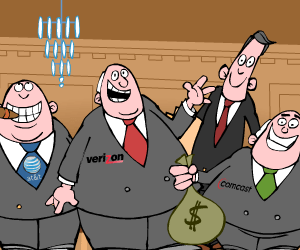
<a href="https://www.flickr.com/photos/kcolwell/3326493725/in/photolist-m4CRHm-8TGZ4z-8TGYWV-3LCiom-iWkjLe-6xqpjH-ezvde4-6M5RcK-f7VHov-dn3oTb-eGAc2h-fEEpNM-8BDsP-fAyfha-64X9G6-htLSiS-84ZwtS-6Hkcud-btA62Q-2VgqH-aGrQdB-eNgrTW-5HmJ79-7oq7eC-e5XQA6-fnrfJS-k8ZF8V-dn3mde-jEMyLA-cLva5C-ik9St4-7K8fR8-xKAHB-6RtwxR-ecWx5d-711315-dsEYgg-f69gsP-4N2QDz-eJ3YTo-9Uf6aW-2pjFLq-n7utfV-a9M22b-n1hrTg-i1Pxf-a8tVTq-e2kt5j-nmnYkM-fznGaZ">Ken Colwell</a>/Flickr
Late last month, the Federal Communications Commission announced that it would propose new rules allowing companies like Netflix or Google to pay internet service providers (ISPs) like Verizon or Comcast for faster data lanes to deliver video and other content to their customers. In other words, the FCC was proposing to replace net neutrality—the egalitarian internet that we all know—with a pay-to-play platform designed to favor the biggest and richest players.
The backlash online was so huge, swift, and predictable that one might wonder what the hell the FCC bureaucrats were thinking. Could a handful of powerful companies really matter more to the commission than pretty much everybody else who uses the internet? The charts below show how a few wealthy special interests wield huge sway within the FCC, particularly with regard to the net neutrality debate. But first, a quick refresher on what net neutrality means:
Proponents of net neutrality, also known as the open internet, fear that allowing a fast lane on the web would hurt startups, nonprofits, activists, and anyone else who couldn’t afford to pay the toll. Bigger tech companies such as Google also tend to favor net neutrality, though sometimes more for the sake of public relations than principle. But, you might ask, since the internet is already quite fast today compared with a few years ago, is a few seconds’ difference in the time needed to load a web page really all that important? Actually, yes, it is. Here’s why:
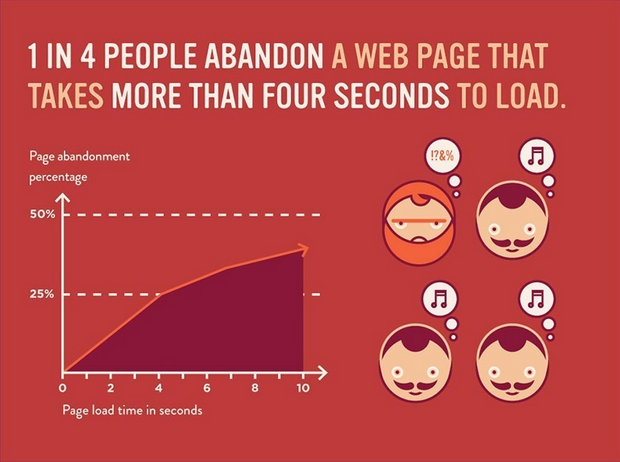
This might be one reason Barack Obama visited the Googleplex during his first presidential campaign and painted himself as one of net neutrality’s staunchest defenders.
Obama’s first pick to lead the FCC, Julius Genachowski, was initially a strong proponent of net neutrality. Genachowski made a video explaining why he wanted to reclassify ISPs as “telecommunications services,” a legally bulletproof way of preserving an open internet that had long been favored by consumer groups. But he ultimately backed off in the face of an onslaught of lobbying by ISPs. By then their main trade group, the National Cable and Telecommunications Association (NCTA), was spending about 95 times more money lobbying the FCC than the Internet Association, which represents the tech companies that favor net neutrality.
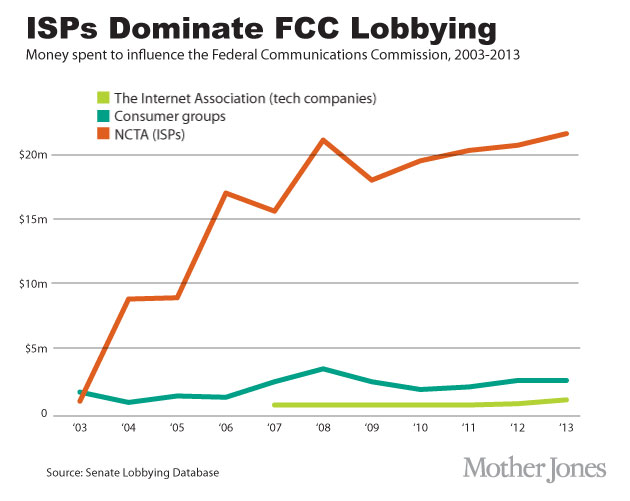
Last May, two months after Genachowski stepped down, Obama replaced him with Tom Wheeler, a veteran telecommunications lobbyist who’d served as president of the NCTA before taking the helm of the Cellular Telecommunications and Internet Association (CITA), the lobbying arm of the wireless industry. Obama called him “the Bo Jackson of telecom.” The New Yorker‘s John Cassidy suggested that a more apt sports metaphor might have been “to compare him to one of the lawyers who helped finagle a lucrative anti-trust exemption for professional football and baseball.”
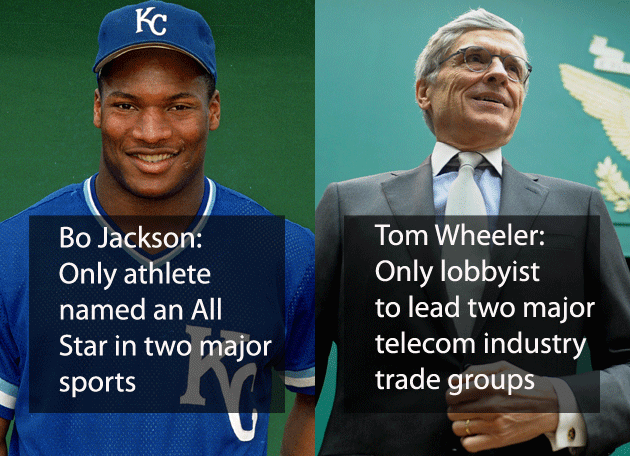
Did Obama like that Wheeler represented two of the most powerful groups that oppose net neutrality, or could he have picked him for some other reason? See below.
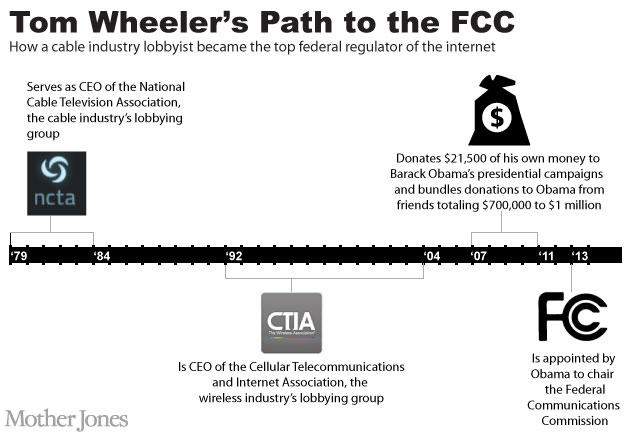
It’s too early to say whether Wheeler’s new net neutrality rules will be the nail in the coffin for an open internet. The FCC won’t officially reveal them until May 15 (or later), and even then, a lot will depend on the FCC’s discretion. Wheeler has said that the commission won’t allow ISPs to “act in a commercially unreasonable manner to harm the internet,” but what, exactly, does that mean? Is it commercially unreasonable to price the little guys out of faster internet service, or to effectively force people to pay more to watch House of Cards? Who knows? The only certainty is that Wheeler’s former employers, the ISPs and wireless carriers, will flood the zone with lobbyists.
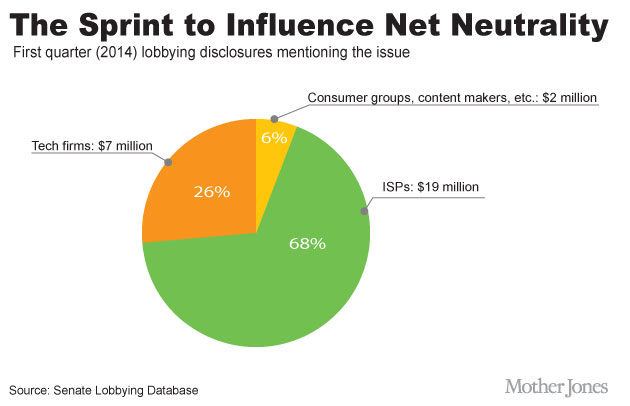
With a few notable exceptions, you can assume that tech companies, consumer groups, and content producers favor net neutrality, while ISPs oppose it. Which is to say, if the lobbyists have their way, the future clearly lies in net discrimination.


